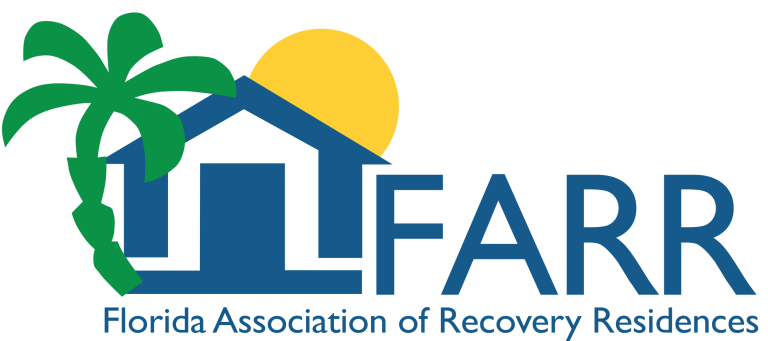Navigating the complexity of mental health illnesses may be difficult, particularly for ailments such as Dissociative Identity Disorder (DID). DID is often misunderstood and stigmatized, necessitating rigorous diagnosis and understanding. Let’s look at the DID diagnosis procedure, shining light on its complexities and refuting myths along the way.
What is Dissociative Identity Disorder:
Dissociative Identity Disorder, often known as multiple personality disorder, is defined as the presence of two or more different personality states within an individual. These personas may have distinct names, traits, and mannerisms, resulting in memory gaps and a sensation of disconnection from one’s thoughts, feelings, and environment.
Seeking Professional Help:
The path to a diagnosis usually begins with seeking professional care from a psychiatrist or psychologist who specializes in dissociative disorders. This stage is critical in giving people the assistance and information they need to properly manage their symptoms.
Comprehensive Assessment:
During the diagnosis procedure, healthcare experts perform a thorough evaluation of the patient’s symptoms, personal history, and experiences. This evaluation may include interviews, questionnaires, and psychological tests aimed to determine the existence and severity of dissociative symptoms.
Exploring Trauma and Triggers:
Trauma is at the core of Dissociative Identity Disorder, frequently resulting from childhood abuse, neglect, or other types of extreme stress. Healthcare experts investigate the person’s background to determine the underlying trauma and probable triggers for dissociative episodes.
Observing Dissociative Symptoms:
The presence of dissociative symptoms such as amnesia, identity confusion, identity modification, and depersonalization is critical in the diagnosis of DID. These symptoms appear in a variety of ways, affecting the individual’s everyday functioning and sense of self.
Dissociative Identity Disorder Symptoms
Dissociative identity disorder (DID), also known as multiple personality disorder, is a complicated mental health problem. Here are a few significant symptoms:
Presence of two or more distinct identities: These identities, also known as alters, have unique ways of thinking, behaving, and engaging with the environment. They may differ in age, gender, or ethnicity.
Memory gaps: People with DID frequently have memory lapses, forgetting entire events or periods. This may be particularly true for traumatic occurrences.
Detachment and dissociation: Individuals with DID may feel isolated from themselves or their environment. They may believe they are out of their body or that the world is false.
Changes in behavior and thinking: As the changes take hold, the person’s mood, speaking habits, and priorities may shift abruptly.
Here are some other symptoms that can arise with DID:
- Depression
- Worry
- Suicidal thoughts or self-harm
- Sleep problems
- Substance abuse
- Flashback
It’s important to remember that DID manifests differently in everyone. If you believe that you or someone you know has DID, you should get treatment from a trained mental health practitioner.
Causes of Dissociative Identity Disorder
Dissociative identity disorder (DID), formerly known as multiple personality disorder, is a mental health illness marked by the existence of two or more distinct personality states or identities that occur in a person at different times. Affects a person’s behavior. The specific cause of DID is unknown, however, it is thought to be linked to significant trauma such as abuse or neglect in childhood.
- Childhood abuse is the most prevalent risk factor for DID. People who have been physically, sexually, or emotionally abused are more likely to get DID than people who have not been.
- Traumatic events: Natural disasters, war, and accidents can all increase the risk of DID.
- Genetic predisposition: Some studies suggest that there may be a hereditary susceptibility to DID. However, further study is needed to confirm this.
It is important to note that not everyone who experiences trauma will develop DID. There may be other factors that contribute to the development of the disorder.
Treatment of Dissociative Identity Disorder
Dissociative identity disorder (DID), formerly known as multiple personality disorder, is a mental health condition where a person has two or more distinct identities or personality states that control their behavior at different times. Can do. Treatment for DID focuses on psychotherapy or talk therapy. Medications can’t cure DID itself, but they can help with symptoms of depression and anxiety, or other conditions that may accompany DID.
Here are the goals of therapy for DID:
- Improve communication and collaboration between different identities
- Reduce stress and improve daily functioning
- Recognize and address underlying trauma
- develop healthy coping mechanisms
- If desired, move toward integration of different identities
Many different types of therapy may be helpful for DID, including:
- Psychodynamic Therapy
- Ego State Therapy
- Cognitive Behavioral Therapy (CBT)
- Dialectical Behavior Therapy (DBT)
- Eye Movement Desensitization and Reprocessing (EMDR)
It is critical to find a therapist who has expertise with DID. Treatment may be prolonged, but it can help persons with DID live happier lives.
Collaborative Approach:
The diagnosis procedure requires teamwork between the patient and their healthcare professional. Open communication and trust are essential in creating a supportive atmosphere in which people feel comfortable sharing their experiences and receiving advice.
Holistic Treatment Approach:
Beyond diagnosis, the path to healing entails a comprehensive treatment strategy that includes psychotherapy, medication management, and support from loved ones. Cognitive-behavioral therapy and dialectical behavior therapy are two common therapy techniques used to treat dissociative symptoms and foster identity integration.
Empowering Individuals:
Individuals with DID are empowered by knowledge, resources, and a sense of agency in their recovery path. Individuals who cultivate resilience and self-awareness can better handle their symptoms and strive for a feeling of completeness.
The diagnosis of Dissociative Identity Disorder is a multi-dimensional procedure that needs careful assessment of symptoms, trauma history, and cultural factors. Individuals with DID can recover and regain their sense of self by receiving compassionate treatment and working together.
Benefits of Dissociative Identity Disorder Treatment
Treatment typically involves psychotherapy, such as:

Trauma-focused Treatment: This style of therapy assists persons with DID in processing and healing from the trauma that causes their disorder.
Cognitive-behavioral Therapy: Cognitive-behavioral Therapy (CBT) can assist individuals with DID in identifying and changing negative thinking patterns that contribute to their symptoms.
Family Therapy: Family therapy can assist family members in better understanding DID and how to support their loved ones.
Here are some benefits of DID treatment:
- Improved communication and cooperation among the different identities
- Reduced amnesia and dissociation
- Increased emotional stability
- Improved coping skills
- Reduced self-harm and suicidal thoughts
- Improved relationships with family and friends
- Increased ability to function at work and in school
If you or someone you know is struggling with DID, please seek professional help. A therapist can help you develop a treatment plan that is right for you.
Contact Deland Treatment Solutions for Professional Help
If you suspect you or someone you know might have Dissociative Identity Disorder, seeking professional help is crucial. At Deland Treatment Solutions, our qualified mental health professional can guide you through the diagnosis process and develop a treatment plan for managing this complex condition. Call us today at (386) 866-8689 for care and support.





























